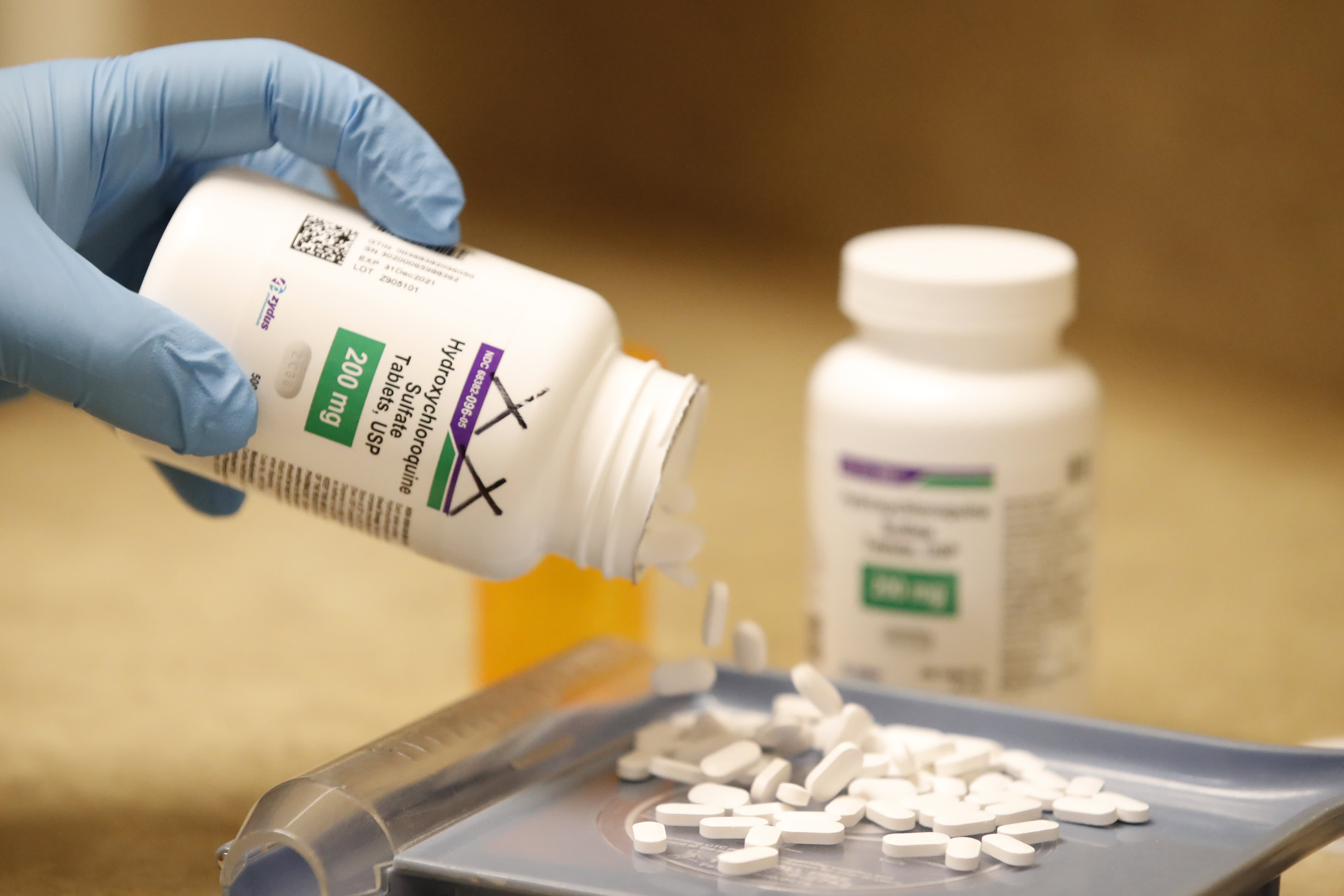This photograph taken on July 3, 2020, shows a sign of the World Health Organization (WHO) at their headquarters in Geneva, amidst the COVID-19 outbreak, caused by the novel coronavirus.
FABRICE COFFRINI
The World Health Organization announced Saturday that it has discontinued trials of the combination HIV drugs lopinavir and ritonavir as a combined treatment for hospitalized coronavirus patients after interim results showed the drugs “produce little or no reduction in the mortality” of Covid-19 patients.
Several thousand patients had been enrolled in the lopinavir/ritonavir arm of the WHO-led Solidarity Trial as well as a separate U.K.-led coronavirus trial of those drugs.
The Solidarity Trial was established by the WHO to find an effective Covid-19 treatment for patients. It began with five arms looking at possible treatments: standard care; remdesivir; hydroxychloroquine; lopinavir/ritonavir; and lopanivir/ritonavir combined with interferon.
The WHO also said Saturday that it was discontinuing the hydroxychloroquine arm of its global study. The U.N. agency had previously announced it was dropping the malaria drug, which U.S. President Donald Trump has advocated as a treatment for the virus despite multiple studies showing it has no benefits.
“WHO today accepted the recommendation from the Solidarity Trial’s International Steering Committee to discontinue the trial’s hydroxychloroquine and lopinavir/ritonavir arms,” the WHO said in a statement.
Hydroxychloroquine is also used rheumatoid conditions like arthritis. The drug garnered excitement earlier in the year after several small studies suggested it could be help treat coronavirus.
The WHO’s decision to discontinue its studies of hydroxychloroquine and lopinavir/ritonavir applies only to trials on hospitalized coronavirus patients. It does not preclude studies of the drugs on non-hospitalized patients or as preventative treatments for patients before and after exposure to coronavirus.
There are no FDA-approved drugs to treat the coronavirus, which has infected more than 11 million people worldwide and killed at least 527,647, according to data from Johns Hopkins University.
